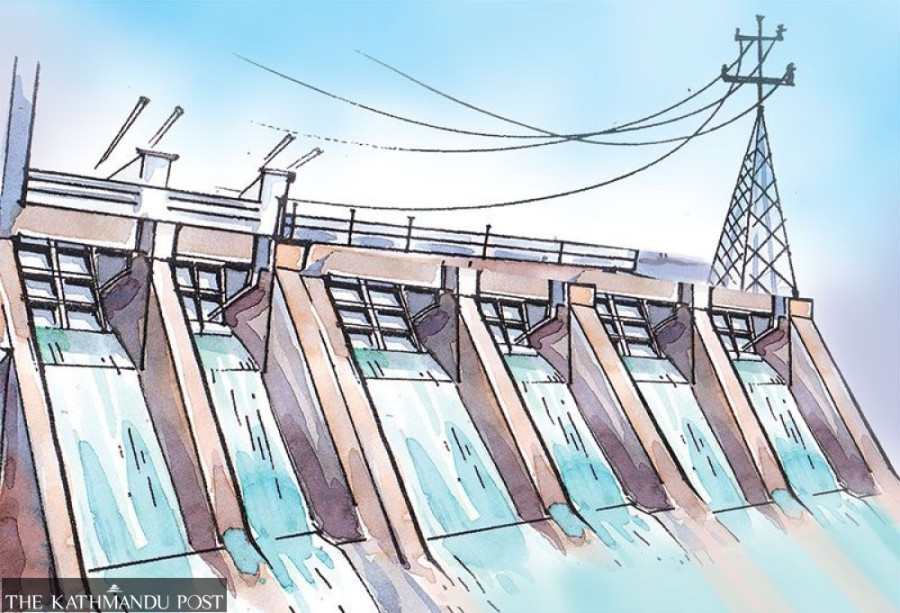Dhaka has sent a draft proposal. Nepal, India and Bangladesh only have bilateral mechanisms as of now.

Bangladesh has proposed a mechanism between Nepal, India and Bangladesh at the highest bureaucratic level to enhance trilateral cooperation in the energy sector.
Currently, Nepal has bilateral mechanisms for energy cooperation with both India and Bangladesh; while India and Bangladesh also have similar mechanisms that work to smoothen out wrinkles in cooperation in the energy sector at bilateral level.
epal’s two mechanisms with India are the joint secretary-level Joint Working Group (JWG) and the secretary-level Joint Steering Committee (JSC). Both were established as per the Agreement on ‘Electric Power Trade, Cross-border Transmission Interconnection and Grid Connectivity’ signed in October 2014.
Likewise, such mechanisms with Bangladesh were established based on a ‘Memorandum of Understanding on Cooperation in the Field of Power Sector’ between the two countries in August 2018.
Bangladesh has sent a draft of agreement on setting up a trilateral Joint Working Group and Joint Steering Committee, said Nabin Raj Singh, spokesman for the Ministry of Energy, Water Resources and Irrigation. “We received the draft last week and are discussing it internally,” he said.
He, however, added that he was unaware whether Bangladesh had sent a similar proposal to the Indian government.
At a time when all three countries have been holding bilateral talks on trading of power among three countries along with joint investment in hydropower plants in Nepal, Bangladesh has sent the proposal on establishing the high-level trilateral mechanism.
For example, India had also promised to help Nepal export 40MW of electricity to Bangladesh through its existing transmission infrastructure when Prime Minister Pushpa Kamal Dahal visited India in May-June.
Besides exporting 40MW through Indian transmission infrastructure, Nepal and Bangladesh have agreed to work on establishing a dedicated transmission line for power trade between Nepal and Bangladesh, for which the southern neighbour’s cooperation i.s essential as Indian territory will be used for a dedicated power line.
Likewise, Nepal and Bangladesh reached an understanding to involve India for the development of the 683MW Sunkoshi-3 hydropower project, making the enterprise a trilateral venture. The understanding was reached during the JWG and JSC meetings held in Bangladesh in May as Indian cooperation would be vital to export electricity generated from the project to Bangladesh.
Nepal and Bangladesh have long been talking about developing this project, located on the border of Ramechhap and Kavre districts of central Nepal.
Bangladesh has also issued a letter of intent to India’s GMR Group expressing its interest to enter a contract to purchase 500MW of electricity from the Nepal-based 900MW Upper Karnali Project.
In the Joint Vision Statement on Power Sector Cooperation between Nepal and India in April 2022, the two countries agreed to expand cooperation and include partner countries under the BBIN (Bangladesh, Bhutan, India and Nepal) framework.
So far, Nepal, India and Bangladesh don’t have any trilateral mechanism to work on the energy sector. Both Nepal and Bangladesh have been requesting the southern neighbour for such a mechanism, according to officials.
“The establishment of a trilateral mechanism will open the door for policy-level dialogue to promote cooperation among three countries,” said Singh.
The issue of trilateral cooperation has come at a time when all three countries are making a push for renewables. For example, Nepal aims to ensure 15 percent of the total energy demand is met through renewable energy—hydropower and other alternative energy—by 2030.
The Indian government has set an ambitious target of having 500GW of installed renewable energy by 2030 while Bangladesh also wants to generate 40 percent of its electricity from renewables by 2041.












